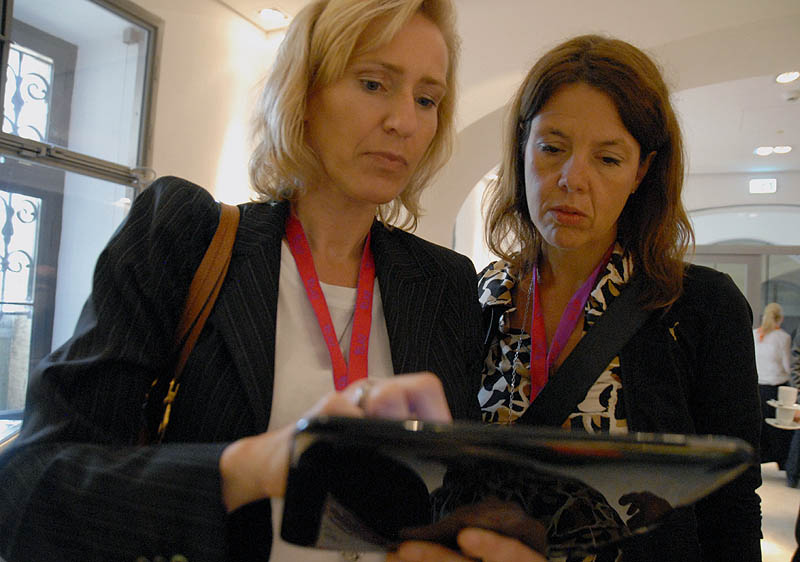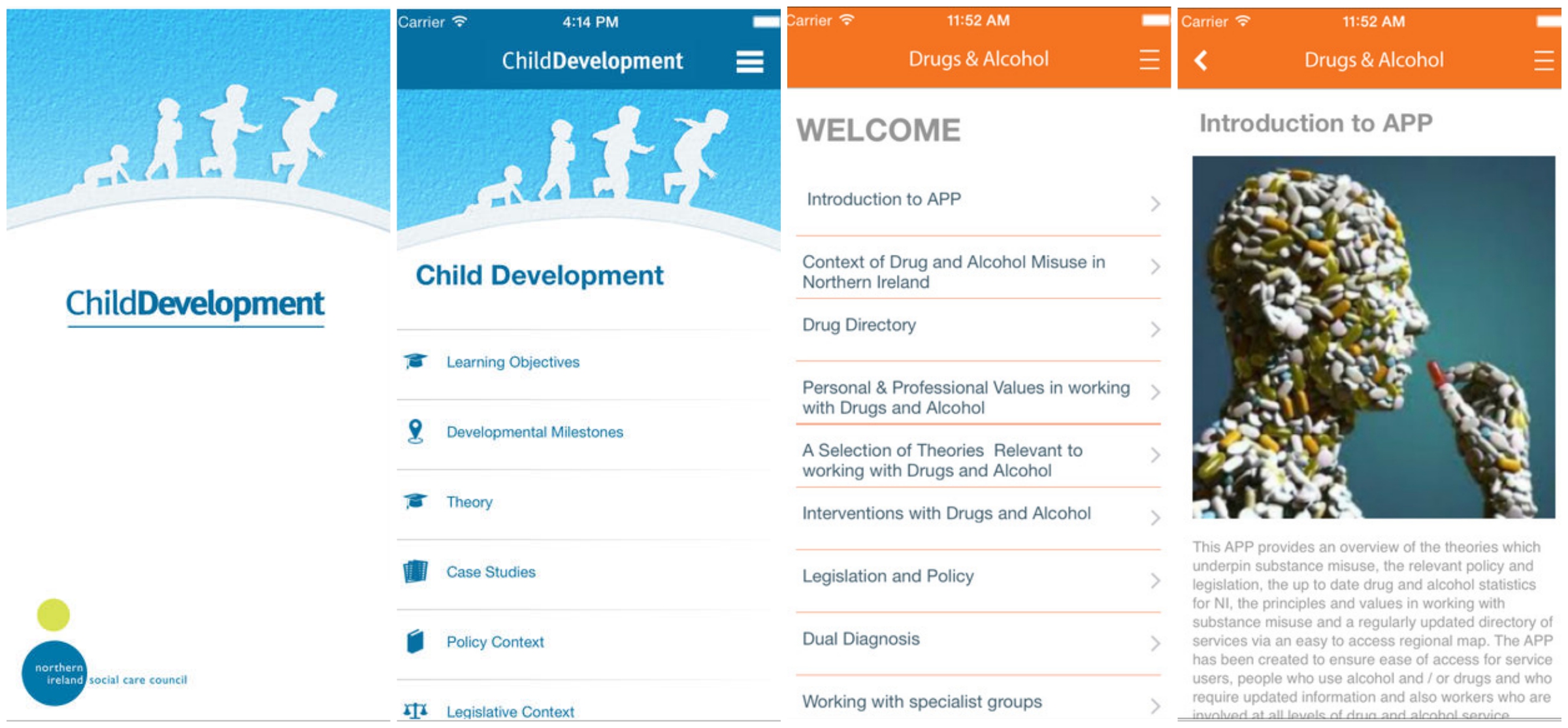Using social media in social work practice was the topic of conversation at a recent conference, held at the University of Stirling. With a delegate list including academics, researchers, practitioners and representatives from the public and private sectors the conversation topics were broad and wide ranging from how to use social media, what to avoid doing and how to integrate digital technologies and systems into everyday practice for social workers.
 Partnerships to deliver digital solutions
Partnerships to deliver digital solutions
In March last year we told you about the partnership between a local authority and Idox who teamed up to deliver a digital case management tool to support the council social workers in their day to day practice. The ideas that were promoted during the conference not only emphasises the innovative nature of that partnership when it was developed, but also the continuing possibilities to pursue innovative digital solutions within local government to allow Idox to continue deliver efficient and positive outcomes for service users.
Avoiding social media pitfalls
Aside from poor infrastructure, like a lack of wifi, and seemingly impenetrable work computer firewalls, both of which came up regularly in discussions, one of the main reasons social workers did not use social media was fear, uncertainty and worry of the repercussions should something be posted or liked which was deemed inappropriate.
Rachel Wardell, the director of Services at Warwickshire council gave a talk on utilising Twitter in an appropriate way and outlined the “7 stages of Twitter” for new and advanced users. She suggested that Twitter was actually a great way for social workers, teams and managers to make connections and share best practice across the profession. She discussed how links initially forged on twitter by a follow or the sharing of an article developed into partnerships and trips to visit areas of best practice to observe and learn from fellow professionals.
However for many social workers, and their management teams, social media use can still be problematic, with the BBC reporting earlier in the year that there had been a rise in the number of council workers being punished for misconduct relating to social media. For social work teams the pressures and implications are even more significant. In discussion with Birmingham University’s Dr Tarsem Singh Cooner some of the delegates highlighted examples of colleagues who had been accused of bringing the profession into disrepute and some extreme instances where they had been removed from cases at the request of service users who had seen a post on their social media account which was not secured with privacy settings.
While most were keen to stress that these were individual mistakes and misjudgements there was still anxiety about the increasingly blurred boundaries between public and private, the importance of relationship building and personal experience for social workers interacting with service users, but the necessity to remain professional. The phrase ‘social workers are human too’ was used regularly by those advocating the use of social media and that councils should use a level of common sense and discretion when dealing with incidents involving staff and social media. However, the general consensus appeared to be that social media should be treated with caution:
- use a separate work and personal account
- use an alias
- employ maximum privacy settings
- don’t post anything that could potentially bring the profession or your conduct into disrepute

An example (from my own Twitter) of how Twitter can be used to document conferences and interact with professionals
Making social work ‘appier
One of the big developments which has become increasingly popular as a tool to engage social work in digital technology is the creation of apps. Many of the conference discussions were on the benefits of using an app, how they can be utilised fully in their roles as training tools and information providers or how they can be used to encourage participation and communication in aspects such as feedback.
Anne Campbell from Queens University Belfast discussed the development of a series of information-based apps which focused on child development. Another app covered the knowledge of social workers and social care teams of drug and alcohol in substance misuse cases, including symptoms, street names for abused substances and the studies which use examples of substance misuse in social work and adult and child protection cases. She discussed the importance of using practitioners and service users to develop the app, to ensure it was fit for purpose and easy to use. She also highlighted the potential for her apps, which currently operate in a Northern Irish context, to be developed and diversified to account for differences in policy in Scotland, the Republic of Ireland and England and Wales.
There is a potential for software development in the future which would see more secure data files more easily accessible via personalised secure apps and document drop apps, which could be shared across a number of sectors, including health, social care and education. Delivering the digital infrastructure platforms to develop and successfully run integrated systems and sharing platforms such as these would require huge investment from local authorities, and would potentially provide the opportunity to work in conjunction with specialists, such as Idox, to develop software which is supportive, flexible and fit for purpose.

Iphone apps. Image by Daniel Go via Creative Commons
Using social media to create connections
The final part of the afternoon was characterised by case study style discussions, where speakers presented their own experiences, both positive and negative of using social media and stressed the importance of social media as a way to create connections. The connections spoken about included connections between practitioners, to create a more extensive community of best practice within the social work profession, connections between service users and social workers, many of whom feel more comfortable communicating via social media, and finally creating connections between service users to help them provide support to each other. This was something specifically highlighted by the team from Lothian Villas in East Lothian.
Lothian Villas have been using a closed, invite only Facebook group as a forum to interact with young people staying with them during a period in residential care. Members can post on the page, while others respond giving advice and reminiscing, much like a traditional family would do. That, according to Ewan McKay, is vital for allowing children who have come from care to build and maintain relationships and have happy memories of their childhood which can go on to shape how they behave as adults in the future. They can also then pass their memories and advice onto the children who are coming through the system after them.
Other groups spoke about the use of document sharing sites, digital presentation sites and networking sites like LinkedIn to create and document continuing professional development (CPD), a core part of social workers’ continuing improvement and the maintenance of standards.

Image by Innovate 360 via Creative Commons
The conference highlighted the massive steps forward which have been taken and the desire for drive and innovation in digital infrastructure to take public services, and their delivery onto digital platforms. This would allow for greater connectivity between professions such as social work and other service providers in health and education resulting in more efficient services, producing better outcomes for service users. Using digital platforms well, including apps, sharing websites and personal social networking sites such as Twitter will allow practitioners and local authorities to ‘join up’ services to promote more holistic, person-centred care at a local level while allowing professionals to build a network of best practice and document their own CPD. Digital media in social work practice could potentially be a key enabler in improving practice and generating positive outcomes for service users.
Our popular Ask-a-Researcher enquiry service is one aspect of the Idox Information Service, which we provide to members in organisations across the UK to keep them informed on the latest research and evidence on public and social policy issues. To find out more on how to become a member, get in touch.
Follow us on Twitter to see what developments in public and social policy are interesting our research team.
Share
Related Posts
Supporting residents on the decarbonisation journey: leveraging data for effective retrofit projects
As the drive towards decarbonisation intensifies, the social housing sector’s ability to collect, store and manage vast amounts of data becomes increasingly critical. With a shared goal of creating warmer, carbon-free homes, housing associations’ strategic use of data is essential ....
By Donna Gardiner While free school meals (FSM) have been available in England on a means-tested basis since 1944, recent years have seen a renewed focus upon the potential benefits of providing free school meals to all school-aged children. Currently, ....
Today sees the start of Community Garden Week 2023. Across the UK, communities will be celebrating the many and varied types of community gardens, from children’s and neighbourhood gardens to therapy gardens and allotments. The benefits of community gardens are ....
By Hollie Wilson At the start of 2020, an independent review was published setting out what needed to be done to bring about changes to the care system for children and young people in Scotland. At the heart of the ....

